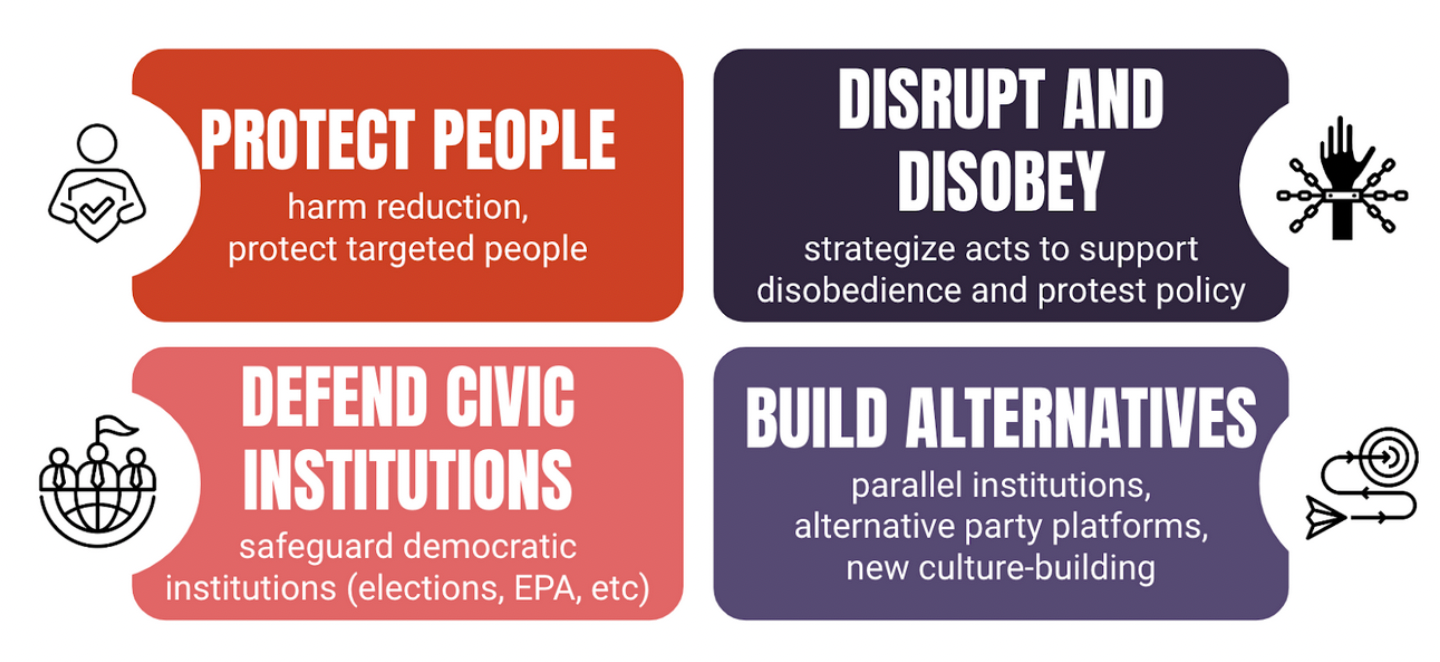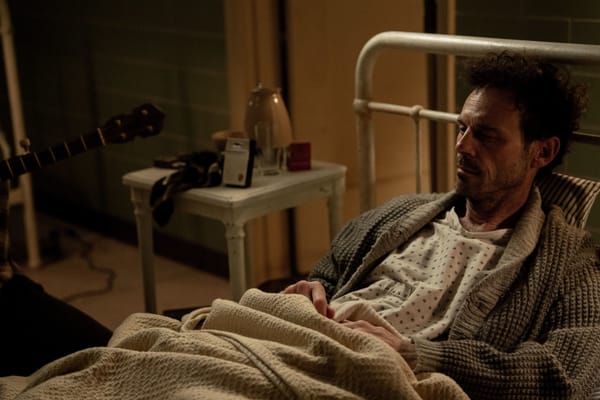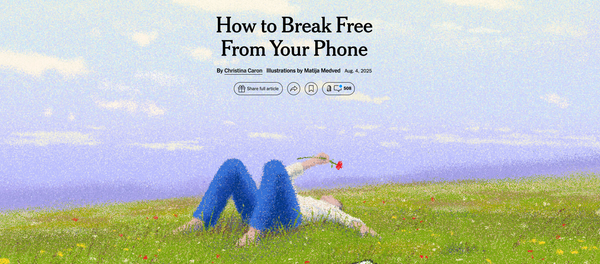A story, some links, much love
Remembering 2016, appreciating a wide range of analysis-toward-action
I don't know how "on program" for A (Christian) Formation Playbook most of today's post will seem, but I've largely appreciated reflections from other non-political newsletter writers this week, so I'll share a few of mine here. Scroll to the end for some links and resources, at least a few of which might be helpful if you're a Christian formation leader.
**
When Trump was elected in 2016, I was a couple months into my doctoral program at Teachers College in New York City, a very racially diverse school full of people who love and care about learning and especially public education.
Apparently I had established myself as a trustworthy religious type with many of my colleagues, because on the equivalent Wednesday morning of the one we just lived through, I felt like a chaplain ministering on the front lines of a natural disaster. It was a foundational day for my sense of what I would now call faith-adjacent vocation. I was a secular pastor to a lot of people who didn't have a pastor.
Thankfully, my advisor had similar impulses, and our research lab transformed its midday meeting into a session for group processing. And I will never forget what one of my female colleagues said. It was something like this:
"I feel terrified out in public. On the street and on the subway, I keep looking around knowing some of the people I'm passing voted for him, and I don't know what that means for my body and personal safety."
Months later, I would hear a similar sentiment from a teenage research participant in a mixed-status Latino family. "I don't know what these policies mean for my parents, but I'm scared."
**
Of all the stories I've heard from friends and colleagues and media accounts this week, the ones that are exasperating me are the ones that want to trivialize or soothe away how some people are feeling. I guess for me this reaction comes partly from a professional bias, as someone trained and dispositionally oriented to want to hold space for other people's feelings and processing.
But also: We don't know what's going to happen. While I don't think it's unreasonable to have hope (indeed, I know it's necessary for me), I also think that it's not just emotionally understandable but also deeply reasonable to fear that a selfish, norm-busting, lawless egomaniac with a hell of a lot of new and likely unchecked power could bring any number of our human and natural systems past a point of no return. It's not ridiculous to fear that his mere election already has, though of course I hope that turns out not to be true.
I don't have a problem with calls to empathize with the majority of voters who supported Donald Trump in the election. Again, I largely resonate with those calls—both temperamentally and strategically. But I sure wish I heard more people who voted from a place of overlooked economic anxiety (how could it not be widespread in a country with so frayed a social safety net?) acknowledging that some of their fellow citizens and fellow human beings are afraid for their very lives right now.
**
In short, here's what I think we're grappling with:
Duh. But also: This acknowledgement challenges a lot of our central American myths and professed values and ideals.
A question I've (rightly) heard this week is the obvious follow-up: Are we already way past the point where these asymmetries can be addressed through the work of building bridges, reaffirming humane norms, engaging in mutual dialogue, sharing and listening to personal stories, etc?
I hope not, and I think I've basically hitched my wagon to that hope through my vocational choices and moral commitments.
I've found a lot of unexpected self-love this week in acknowledging that this is who I am and who I still want to be. For me, the first Trump administration was marked by a lot of shame and self-hatred in this respect. I'm now more clear-eyed that I will almost always be disappointed by others' disregard for the social fabric, but I can't let that weaken my commitment to playing my part in tending that fabric the best I can, with God's help and in collaboration with any and all willing neighbors.
If, like me, you struggled with vocational questions the first time around, I commend to you the piece 10 ways to be prepared and grounded now that Trump has won, which has been doing the rounds. Author Daniel Hunter establishes some really helpful "pathways" of action:

I especially appreciated Hunter's frank acknowledgment:
I’m perhaps too impatient for most “Building Alternatives” and too unhappy with the status quo to do “Defend Civic Institutions.” However, I’m delighted others will do that work!
I'm grateful Hunter is delighted to have me in the coalition, even if my chosen pathways may be weaker against the cruel asymmetries that the Murdochs and Musks and McConnells of the world have lined up and that Trump has manipulated so effectively for his own gain.
**
Media pieces I've found helpful
I have been reading and listening a lot this week (both to learn and to soothe, if I'm honest). From where I sit and for who I am, these are some pieces that spoke to me.
- What I Told My Kids About The Election (Anya Kamenetz, The Golden Hour)
- "It’s your job to have fun and hang out with your friends, and also to go to school and learn ... This is mostly something for grownups to help with, but you are getting old enough to figure out an issue that you want to work on, and you will probably feel better if you are engaged in some way. I urge you to focus on one or two things you already care about, like climate change or LGBTQ rights. I will help you find opportunities."
- 10 ways to be prepared and grounded now that Trump has won (Daniel Hunter, Waging Nonviolence)
- "This is a social disease: You know who to trust by who they tell you to distrust. Trust-building starts with your own self. It includes trusting your own eyes and gut, as well as building protection from the ways the crazy-making can become internalized. This also means being trustworthy — not just with information, but with emotions. That way you can acknowledge what you know and admit the parts that are uncertain fears nagging at you."
- We Can't Let Family Life Become a Political Pawn (Kathryn Jezer-Morton, The Cut, Brooding newsletter)
- "We are all susceptible to fantasies of self-reliance, but we need to hold these fantasies in a new kind of contempt. They seduce us with consumerist delusions that will never satisfy us. They bind the idea of family with beliefs that dehumanize women. They keep us apart from each other."
- Notes from a classroom (Ian Williams)
- "the only way forward is to start building convivial, multicultural institutions and communities ... And, yes, that includes the white boys, because some form of inclusion there, even as we insist it can’t mean their dominance, goes a long way. You can’t shirk from talking about the legacies of colonialism or patriarchy. But, again, it’s about the space to get them there. When we did a week on feminism, I asked what did feminism offer men. Nobody said a word. Not the men, not the women, not the non-binary student. Not the feminists. Not the students who are skeptical of feminism as traditionally presented. No one ... The answer is obvious: you can be a different sort of man, a kinder, more generous one, than what you think you must be. Make it obvious. Most people want to be kind."
- Lead with Love (Bishop Paula Clark, Diocese of Chicago)
- We answer to a higher power, and while the requirements of 1 Thessalonians 5:15-18 might make no sense to others in this post-election context, they are how we exist — how we live, and move and have our being. They are how we aspire to love, in the midst of uncertainty. So, in spite of the turmoil that often surrounds us, as our diocesan motto puts it, we “Lead with Love.” We will not render evil for evil and we will seek the good of all people. Although circumstances may indicate otherwise, we will “Rejoice always,” for there is always good in our lives, even when the world appears very dark.
- Try to see Trump as his voters see him (Rabbi Jay Michaelson, Both/And)
- "[Trump swing voters] were focused on other things, and in these dark hours, I’ve found it personally helpful to reflect on them, not because they are right, or point to things that Democrats should’ve done or said, but simply to lessen the surprise and confusion that so many of us are feeling right now. That is, to make the darkness visible."
- Mourning as a Form of Resistance (Nicole Cardoza, Reimagined)
- "When we mourn, we honor the love we carry for the people and causes that matter most to us. Grieving is one of the bravest things we can do. It’s a return to love for a system that might not love us back, but we do it anyway."
- Where Does This Leave Democrats? (Ezra Klein, New York Times)
- "Emotionally, there are two ways Democrats can respond: contempt or curiosity. I’ve seen plenty of contempt already. If Americans are still willing to vote for Trump, given all he’s said and done, then there’s nothing Democrats or Harris could have done to dissuade them. There’ll be a desire to retreat, to hunker down, to draw the boundaries of who is decent and who is deplorable ever more clearly ... Finding what is next, amid the pain of what is about to come, is going to require a lot of conflict and a lot of curiosity."
- I Study Guys Like Trump. There’s a Reason They Keep Winning (Ben Rhodes, New York Times)
- "the next generation of Democratic leaders should fan out across the country. Learn from mayors innovating at the local level. Listen to communities that feel alienated. Find places where multiracial democracy is working better than it is in the rest of the country. Tell those stories when pitching policies. Foster a sense of belonging to something bigger, so democracy doesn’t feel like the pablum of a ruling elite, but rather the remedy for fixing what is broken in Washington and our body politic."



